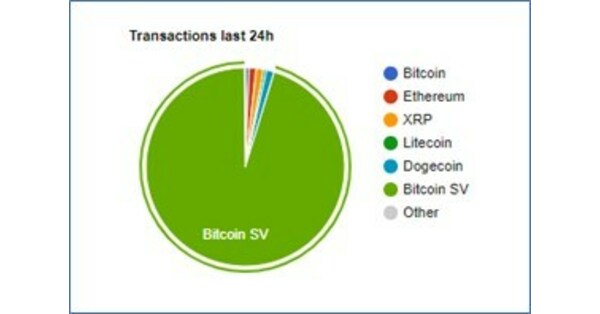Revolutionizing Healthcare Computing with AI and Blockchain: Galeon’s Approach – Cryptopolitan

Artificial intelligence (AI) and blockchain technologies have emerged as powerful tools in many industries. In healthcare, these technologies hold great promise for improving patient outcomes, reducing costs and driving medical research forward.
Galeon, an innovative company, is at the forefront of this development, using AI and blockchain to understand health data.
AI has the potential to revolutionize healthcare
How? By enabling healthcare professionals to make more accurate and timely diagnoses, improve patient outcomes and streamline processes.
With the increasing amount of healthcare services being generated every day, AI is also being explored to solve problems related to data analysis and management.
Security while using medical data provided by the blockchain technology
One of the challenges of using medical data is ensuring security and transparency. Patient data is very sensitive and requires a high level of security.
Blockchain technology, with its secure and transparent system for handling medical data, provides a level of trust for both patients and healthcare professionals.
And this is what Galeon does
Galeon explores ways to adapt machine learning to medical sectors to extract meaningful insights and optimize patient care. By securing structured data that conforms to patient agreements, Galeon builds a framework ideal for medical research.
The focus is on developing sophisticated and intelligent electronic health records (EHRs) that can contain all necessary information, such as medical procedures, treatments and births. The structured data, combined with the transparency of blockchain technology, can create a basis for developing medical insights and driving research forward.
Galeon’s innovative approach to health data processing involves combining AI and blockchain technologies.
Let’s introduce BSL (Blockchain Swarm Learning)
Galeon’s Blockchain Swarm Learning (BSL) technology combines machine learning with blockchain to make sense of health data. This approach ensures that health data is organized and accessible while maintaining the highest level of security and transparency.
One of Galeon’s main targets is to develop a patient-centred, structured electronic health record (EHR) that can be used by healthcare professionals to provide better patient care.
Galeon’s EHR is designed to be highly sophisticated and intelligent, allowing healthcare professionals to enter all relevant information related to a patient’s care.
The EHR is accessible to healthcare professionals via Galeon’s AI, which uses machine learning algorithms to analyze the data and extract meaningful insights.
This approach to processing health data can improve patient outcomes, reduce costs and drive medical research forward.
The benefits of using blockchain in healthcare data processing
Firstit provides a secure and transparent system for handling medical data, which is essential for maintaining patient privacy and confidentiality.

Secondblockchain technology can help healthcare professionals access health data quickly and easily.

Thirdcan blockchain technology ensure that health data is accurate and up-to-date, reduce the risk of error and improve patient outcomes.

Galeon’s use of blockchain technology in healthcare computing is part of the broader approach to using AI and blockchain to drive medical research forward.
BSL combines machine learning with blockchain to make sense of health data. This approach ensures that health data is organized and accessible while maintaining the highest level of security and transparency.
The potential benefits of AI and blockchain in healthcare computing are significant. For example, AI and blockchain can be used to develop predictive models that can help healthcare professionals identify patients who are at risk of developing specific diseases or conditions.
These predictive models can help healthcare professionals develop more effective treatment plans and improve patient outcomes.
AI and blockchain can also be used to improve the management of health resources. For example, AI can be used to identify inefficiencies in healthcare and suggest ways to improve them.
Blockchain technology can help healthcare professionals track the use of healthcare resources and ensure they are used efficiently.
Conclusion
To conclude, AI and blockchain technologies promise well for the healthcare sector. These technologies can be used to improve patient outcomes, reduce costs and drive medical research forward. Galeon’s innovative approach to health data processing, which combines AI and blockchain technologies.
























